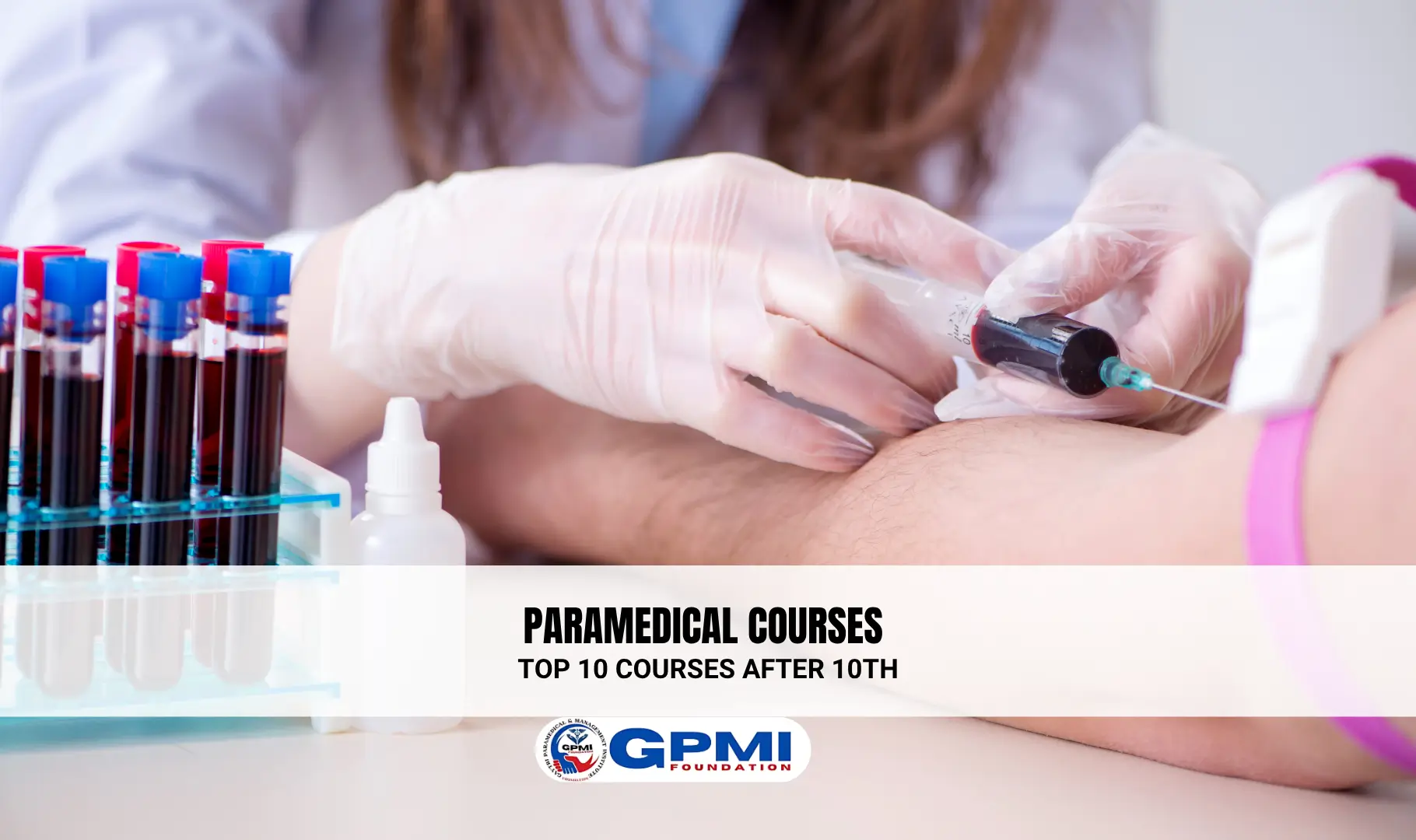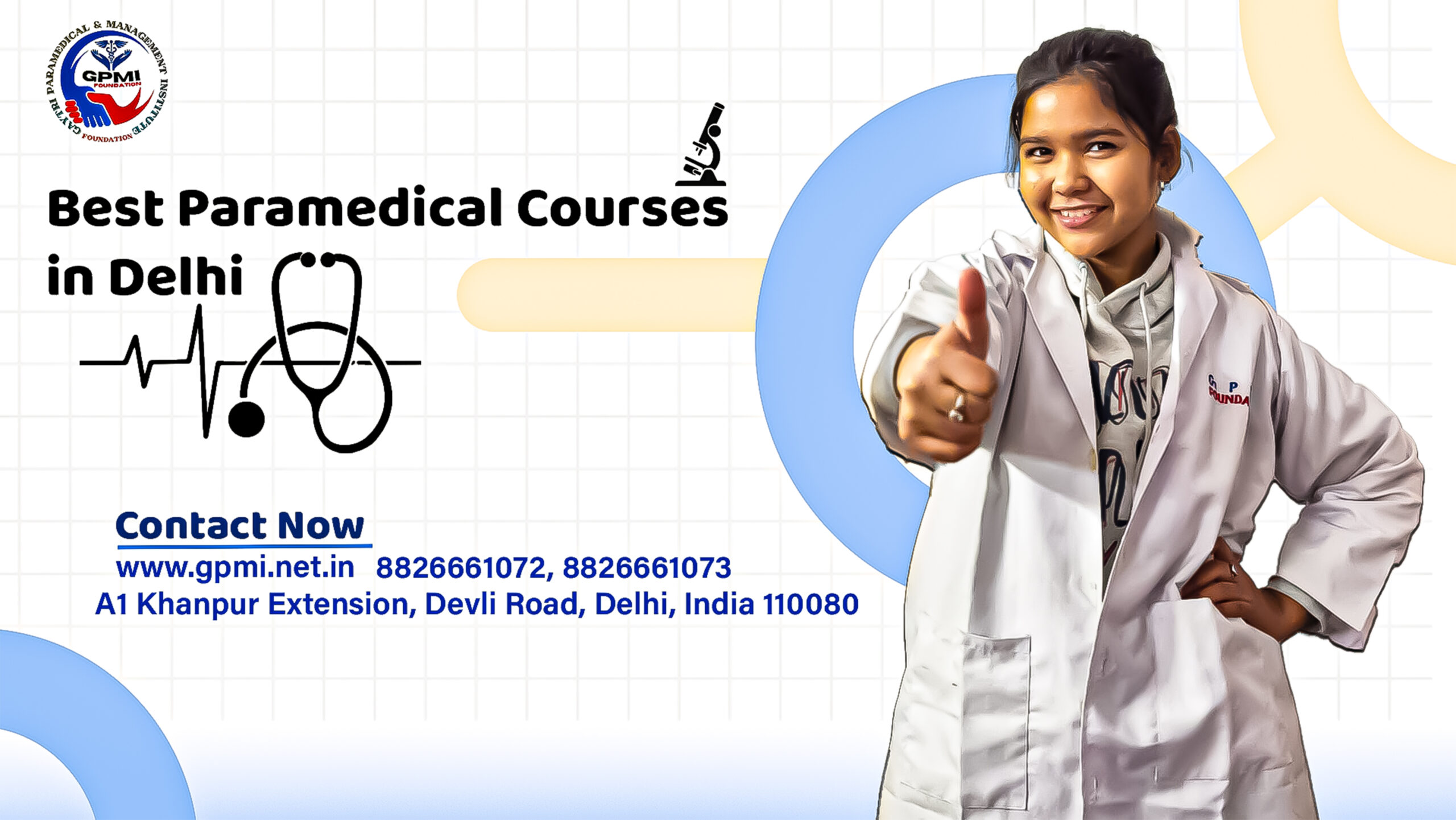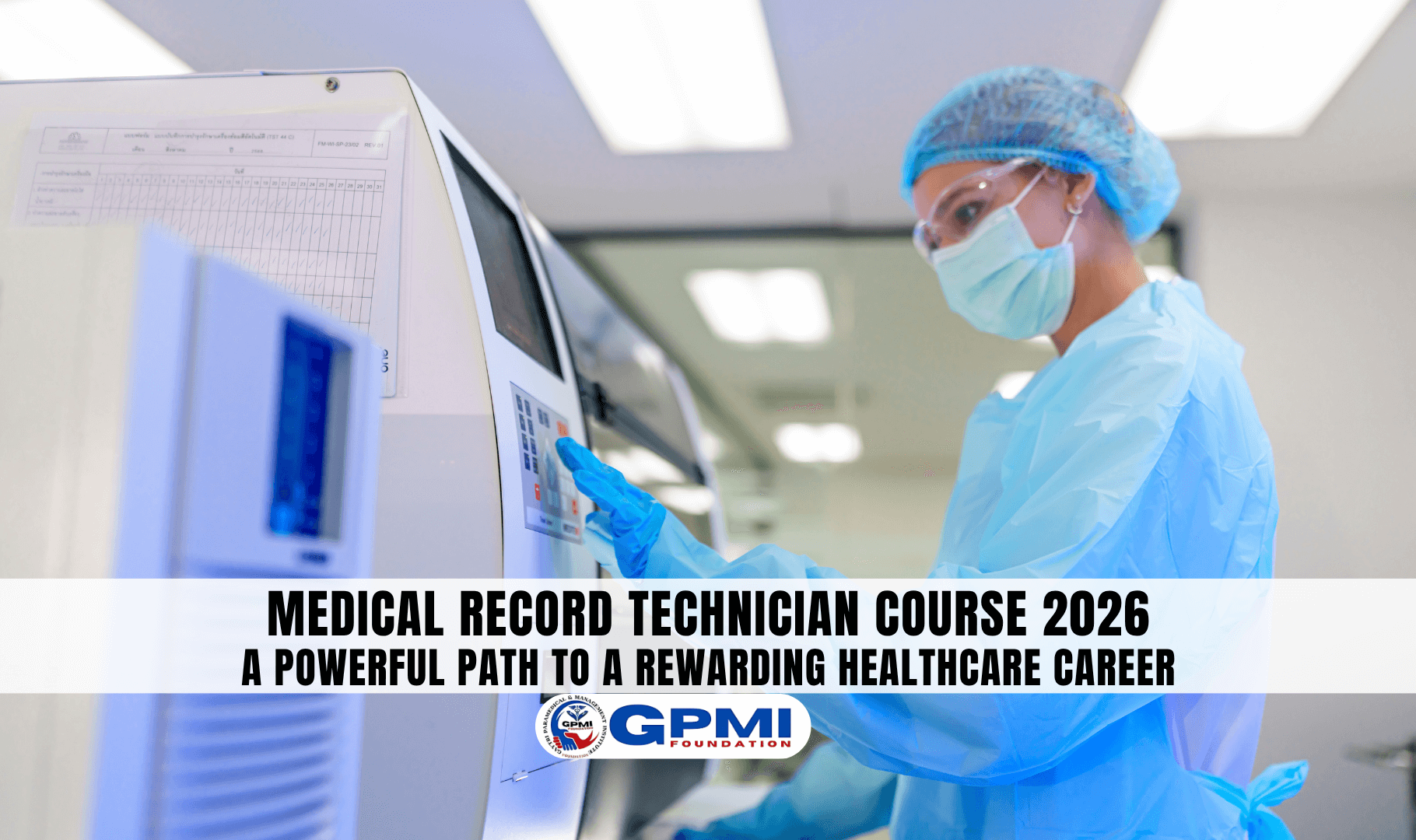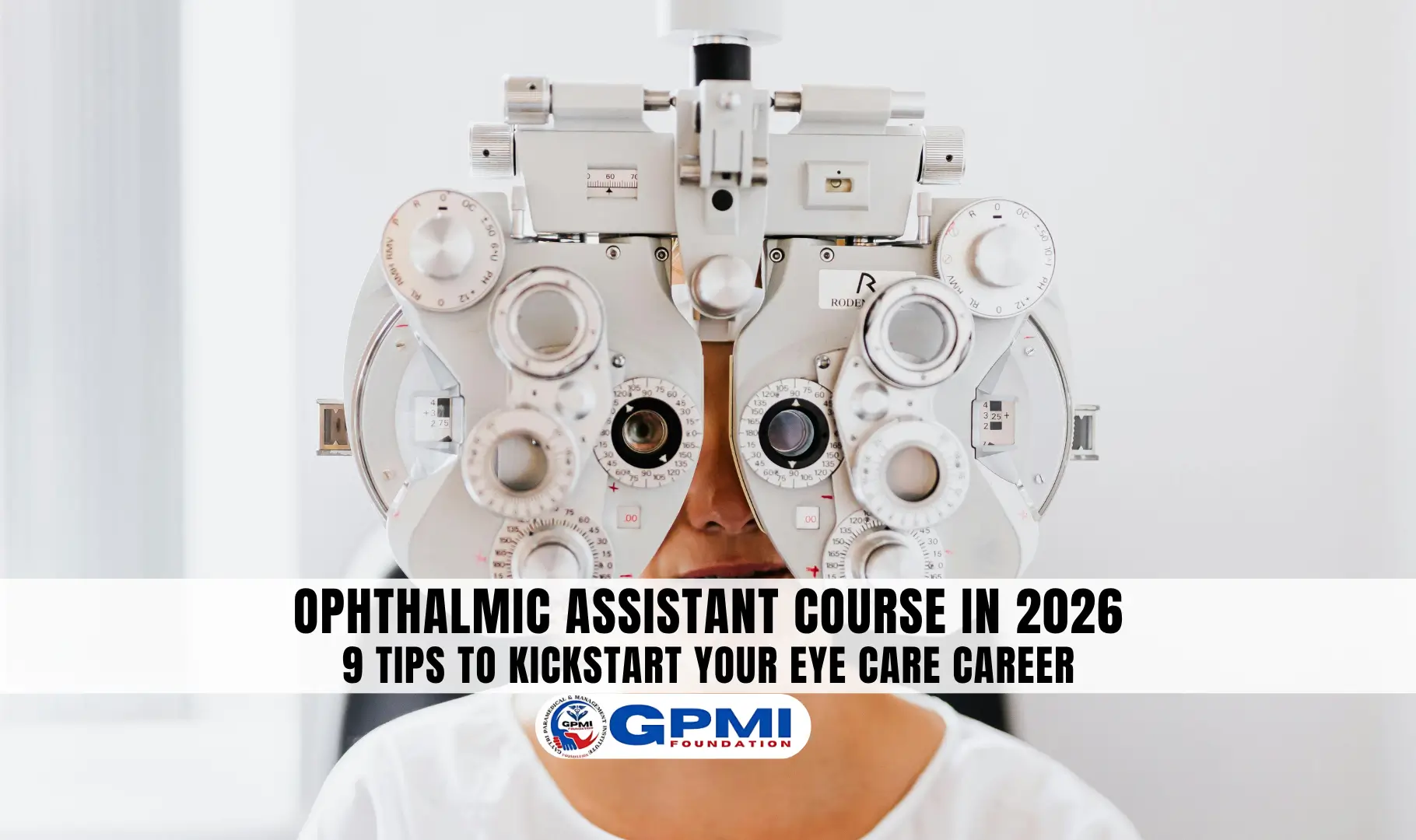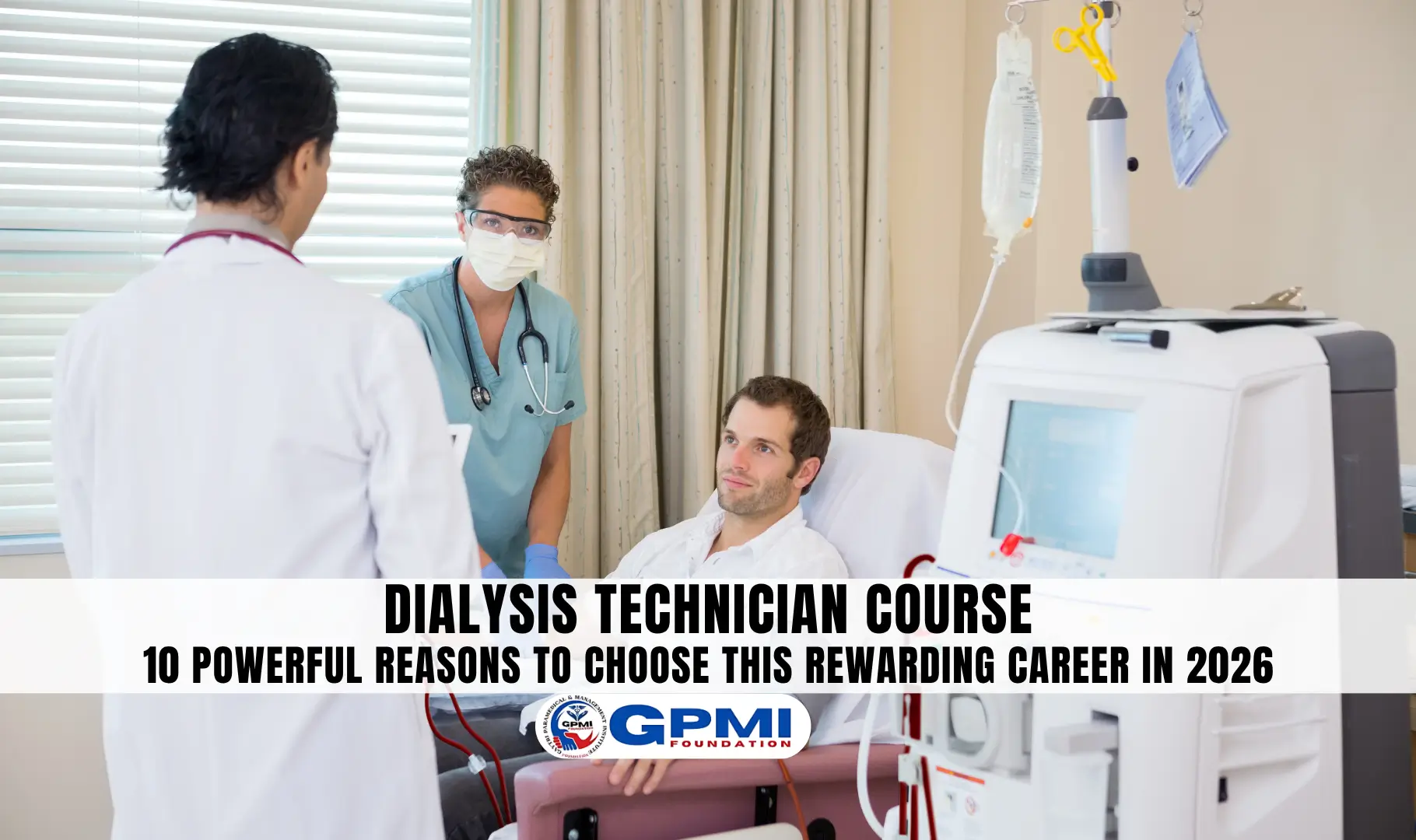Many students complete their 10th standard but, due to financial or personal reasons, are unable to continue their higher education. At this point, their career options become limited, and they often find themselves settling for low-paying jobs with little growth or respect. Without further qualifications, building a stable and satisfying career becomes challenging.
However, paramedical courses after 10th open a new door of opportunity for such students. These skill-based programs are specially designed to help 10th-pass students step into the healthcare sector, one of the most respected and growing industries today.
By choosing the right paramedical course, students can gain practical skills, secure well-paying jobs, and enjoy a meaningful career helping others. Whether it’s working in a hospital lab, supporting doctors in surgery, or responding to emergencies, these roles bring both job satisfaction and financial stability.
So, for students who thought their options ended after 10th, paramedical education offers a fresh start — a chance to grow, earn, and be respected in the medical field.
Table of Contents
What is Paramedical Courses?
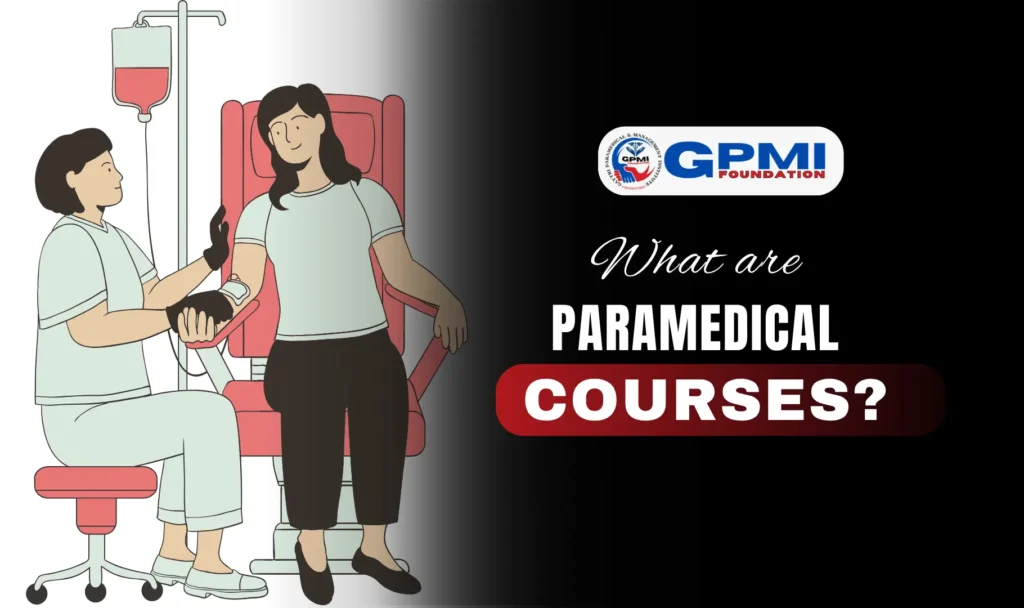
Paramedical courses are special training programs that prepare students to work in the medical field without becoming doctors. Paramedical courses are not doctor or nursing courses but focus on important support roles in hospitals, clinics, and labs. Some common paramedical jobs include lab technicians, X-ray technicians, dialysis technicians, and operation theatre assistants.
These courses are short-term, skill-based, and easy to understand for students who have completed just 10th class. Whether it’s learning to collect blood samples, assist in X-rays, help in dialysis, or manage operation theatre tools, these courses give students the power to work and earn in a respected medical environment.
One big benefit of paramedical education is that students can join after 10th or 12th class. If you are looking for paramedical courses after 10th, you will find many diploma or certificate options like DMLT, X-ray Technician, or Nursing Assistant. These courses are offered by paramedical institutes and training centers in most cities.
In short, paramedical courses allow 10th-pass students to build a bright future in the healthcare sector without spending years in traditional education. It’s a smart and respected career path that starts early and grows steadily.
Paramedical Courses After 10th Duration & Eligibility
Short-term paramedical courses are suitable for students who have passed their 10th class from a recognized board. These courses do not require science as a compulsory subject, which makes them accessible for a wide range of students. Most institutes offer direct admission without any entrance test.
The duration of these courses depends on the program you choose:
- Certificate Courses: 6 months to 1 year
- Diploma Courses: 1 to 2 years
- Internship/Practical Training: 1 to 6 months (in some courses)
- Eligibility: 10th pass, Minimum Age 15 Years.
These short-term medical courses help students gain practical skills and get job-ready in a short time.
Paramedical Courses After 10th Fees
The fees for paramedical courses are generally affordable, making them a great option for students from all backgrounds. The fee structure varies depending on the course type, duration, and the institute offering it.
- Certificate Courses: ₹10,000 to ₹30,000
- Diploma Courses: ₹20,000 to ₹60,000 per year
Some institutes also offer installment options, scholarships, or discounts for deserving students. Compared to long-term medical education, these courses are budget-friendly and offer quick job opportunities. Investing in a paramedical course is a smart step toward a stable and respected career in the healthcare field.
Paramedical Courses After 10th Salary
After completing paramedical courses after 10th, students can start earning a decent income even at an early age. The starting salary usually ranges between ₹8,000 to ₹15,000 per month, depending on the job role, institute reputation, and city.
As students gain experience and skills, their salary increases over time:
- 1–2 years experience: ₹15,000 to ₹25,000/month
- 3–5 years experience: ₹25,000 to ₹40,000/month
- More than 5 years: ₹40,000+ with senior roles or abroad opportunities
- Job roles include: Lab Technician, X-ray Technician, Dialysis Assistant, Nursing Care Assistant, etc.
With continuous learning and practical exposure, students can grow quickly in the healthcare field and enjoy both job security and respect.
Diploma Paramedical Courses After 10th
If you have completed only your 10th standard and are searching for a stable and respected career, the paramedical field offers excellent opportunities. There are several skill-based, job-oriented diploma courses in paramedical after 10th that can help you build a sustainable career in the healthcare sector without the need for a high-level academic degree.
These diploma courses focus on practical training, early employment, and real-world medical skills, making them ideal for students who wish to enter the medical field quickly and confidently.
With basic eligibility of 10th pass, students can pursue various certificate and diploma in paramedical courses after 10th such as DMLT, X-Ray Technology, Dialysis Technology, Operation Theatre Technology, and more.
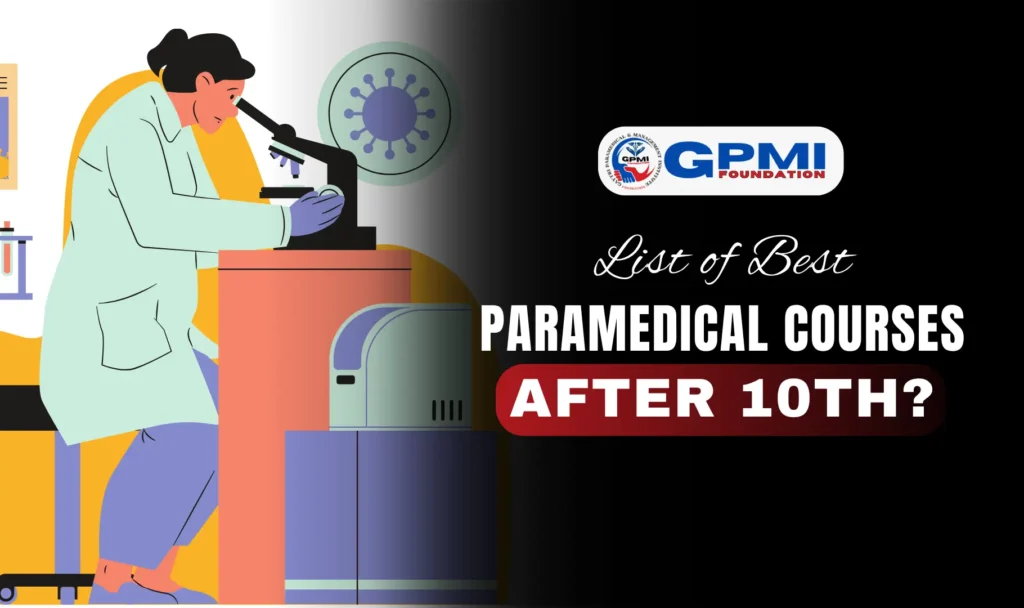
List of Paramedical Courses After 10th
If you’re looking for the best paramedical courses after 10th, here is a refined list for you that will help you explore all the popular and job-oriented course options available after 10th. These courses are short in duration, budget-friendly, and focused on hands-on skills that are needed in hospitals, clinics, and diagnostic labs.
1. Diploma in Medical Laboratory Technology (DMLT)
The Diploma in Medical Laboratory Technology (DMLT) is one of the most popular paramedical courses after 10th. It trains students to perform various diagnostic tests on blood, urine, stool, and other body fluids to help doctors detect diseases. This course is ideal for those who are interested in working in medical labs and learning about clinical testing procedures.
- Duration: 1 to 2 years
- Fees: ₹20,000 to ₹60,000 per year (varies by institute)
- Job Roles: Lab Technician, Pathology Assistant, Laboratory Manager
- Work Areas: Hospitals, private labs, diagnostic centers, blood banks
- Starting Salary: ₹10,000 to ₹18,000 per month
- Career Scopes: Opportunities in both government and private sectors, with chances to grow as senior lab technicians or pursue advanced studies like B.Voc MLT or B.Sc. in MLT.
DMLT offers a solid foundation for a healthcare career, combining practical skills with job stability and early employment opportunities.
2. Diploma in X-Ray and Radiology Technology
The Diploma in X-Ray and Radiology Technology is a job-oriented paramedical course that trains students to operate X-ray machines, CT scanners, and other imaging equipment used for diagnosing internal health issues. It is ideal for students interested in medical imaging and working with advanced technology in hospitals.
- Duration: 1 to 2 years
- Fees: ₹25,000 to ₹70,000 per year (depending on institute)
- Job Roles: X-Ray Technician, Radiology Assistant, Imaging Technician
- Work Areas: Hospitals, diagnostic centers, trauma care units, private clinics
- Starting Salary: ₹10,000 to ₹20,000 per month
- Career Scopes: High demand in government and private hospitals, with scope for further studies in radiology and imaging sciences
This diploma course provides hands-on experience and helps students build a career in one of the most essential areas of modern healthcare.
3. Diploma in Operation Theatre Technology (DOTT)
The Diploma in Operation Theatre Technology (DOTT) is a specialized paramedical course that trains students to assist surgeons and nurses during surgeries. Students learn about sterilization techniques, surgical instruments, patient positioning, and maintaining cleanliness in the operation theatre. This course is perfect for students who want to play a key role in surgical teams.
- Duration: 2 years
- Fees: ₹20,000 to ₹60,000 per year
- Job Roles: OT Technician, Surgical Assistant, Anesthesia Assistant
- Work Areas: Hospitals, surgical units, trauma centers, emergency care departments
- Starting Salary: ₹12,000 to ₹20,000 per month
- Career Scopes: Increasing demand in both government and private hospitals; scope for growth into senior OT roles or further study in healthcare management or B.Voc OT
DOTT offers a respected and stable career path for students who want to work in high-pressure medical environments and support life-saving procedures.
4. Diploma in Dialysis Technology
The Diploma in Dialysis Technology is a paramedical course designed to train students in operating dialysis machines and managing patients undergoing kidney dialysis. Students learn how to prepare dialysis equipment, monitor patients during the procedure, and ensure hygienic and safe treatment. It’s ideal for those who want to work in nephrology care.
- Duration: 1 to 2 years
- Fees: ₹20,000 to ₹60,000 per year
- Job Roles: Dialysis Technician, Renal Care Assistant, Dialysis Machine Operator
- Work Areas: Hospitals, dialysis centers, kidney care clinics, private nursing homes
- Starting Salary: ₹10,000 to ₹18,000 per month
- Career Scopes: High demand due to rise in kidney-related diseases; scope for advancement with experience or further studies in nephrology or healthcare management
This course offers a stable and rewarding career path in the growing field of kidney healthcare and chronic disease management.
5. Diploma in Nursing Care Assistant
The Diploma in Nursing Care Assistant is a paramedical course that trains students to provide basic patient care under the supervision of registered nurses or doctors. Students learn skills like feeding, bathing, dressing patients, monitoring vital signs, and maintaining hygiene. This course is ideal for those who want to work closely with patients and support their recovery.
- Duration: 1 to 2 years
- Fees: ₹15,000 to ₹40,000 per year
- Job Roles: Nursing Care Assistant, Home Health Aide, Patient Care Assistant
- Work Areas: Hospitals, nursing homes, elderly care centers, private homes, NGOs
- Starting Salary: ₹8,000 to ₹15,000 per month
- Career Scopes: High demand in India and abroad; scope to upgrade skills through advanced nursing courses or certification in specialized patient care
This course offers early employment opportunities and a fulfilling role in the healthcare system, especially for compassionate individuals who enjoy helping others.
6. Certificate in Emergency Medical Technician (EMT)
The Certificate in Emergency Medical Technician (EMT) is a short-term paramedical course that trains students to provide immediate medical assistance in emergency situations.
EMTs are the first responders during accidents, natural disasters, or medical crises. They learn to perform CPR, manage trauma, control bleeding, and safely transport patients.
- Duration: 6 months to 1 year
- Fees: ₹15,000 to ₹40,000
- Job Roles: Emergency Medical Technician, Ambulance Assistant, First Responder
- Work Areas: Hospitals, ambulance services, trauma centers, disaster relief teams
- Starting Salary: ₹10,000 to ₹18,000 per month
- Career Scopes: High demand in both government and private emergency services; scope for advancement into advanced EMT or paramedic roles with experience
This course is ideal for students who want to serve in fast-paced, life-saving situations and build a respected career in emergency medical care field.
7. Diploma in ECG Technology
The Diploma in ECG Technology is a specialized paramedical course that trains students to perform and interpret electrocardiograms (ECG/EKG) to assist doctors in diagnosing heart-related conditions.
Students learn how to handle ECG machines, monitor heart rhythms, and identify abnormalities in heart function. This course is ideal for those interested in cardiac care.
- Duration: 1 year
- Fees: ₹15,000 to ₹40,000
- Job Roles: ECG Technician, Cardiology Assistant, Monitoring Technician
- Work Areas: Hospitals, cardiology departments, diagnostic labs, heart care centers
- Starting Salary: ₹10,000 to ₹16,000 per month
- Career Scopes: Growing demand due to rising heart diseases; opportunities for advancement through specialized cardiac technician training or further studies
This diploma provides a strong foundation for building a stable and respected career in cardiovascular healthcare.
8. Diploma in Physiotherapy Assistant
The Diploma in Physiotherapy Assistant is a practical paramedical course that trains students to support physiotherapists in treating patients with physical injuries, disabilities, or movement issues. Students learn techniques like massage therapy, exercise therapy, and rehabilitation practices. This course is ideal for those interested in patient care and physical therapy.
- Duration: 1 to 2 years
- Fees: ₹20,000 to ₹50,000 per year
- Job Roles: Physiotherapy Assistant, Rehabilitation Aide, Therapy Assistant
- Work Areas: Hospitals, physiotherapy clinics, rehabilitation centers, sports injury units
- Starting Salary: ₹8,000 to ₹15,000 per month
- Career Scopes: High demand in recovery and rehab care; scope for growth with experience or further studies in Bachelor of Physiotherapy (BPT)
This diploma offers a caring and rewarding career path for students passionate about helping others regain their strength and mobility.
9. Diploma in Optometry Technician
The Diploma in Optometry Technician is a job-oriented paramedical course that trains students to assist optometrists in eye care services. Students learn to conduct basic eye tests, handle optical equipment, and help patients choose appropriate spectacles or lenses. This course is ideal for those interested in vision care and working in clinical settings.
- Duration: 1 to 2 years
- Fees: ₹20,000 to ₹50,000 per year
- Job Roles: Optometry Technician, Vision Assistant, Eye Clinic Assistant
- Work Areas: Eye hospitals, optical stores, private clinics, vision care centers
- Starting Salary: ₹10,000 to ₹18,000 per month
- Career Scopes: High demand in eye care sector; opportunities for growth in optical chains, multinational companies, or further studies in Optometry
This diploma helps students start a respected and rewarding career in the growing field of eye health and vision support.
10. Diploma in Dental Technician
The Diploma in Dental Technician is a practical paramedical course that trains students to design, construct, and repair dental appliances like dentures, crowns, bridges, and orthodontic devices. Students learn about dental materials, lab equipment, and oral anatomy. It is an excellent course for those interested in dental health and lab-based work.
- Duration: 1 to 2 years
- Fees: ₹20,000 to ₹50,000 per year
- Job Roles: Dental Technician, Dental Lab Assistant, Prosthetic Technician
- Work Areas: Dental labs, dental hospitals, private clinics, orthodontic centers
- Starting Salary: ₹10,000 to ₹18,000 per month
- Career Scopes: Increasing demand in dental care industry; scope for opening own dental lab or pursuing higher education in dental technology
This diploma offers a hands-on career path in oral healthcare, with steady job opportunities and a chance to support the dental treatment process.
How to Join Paramedical Courses After 10th?
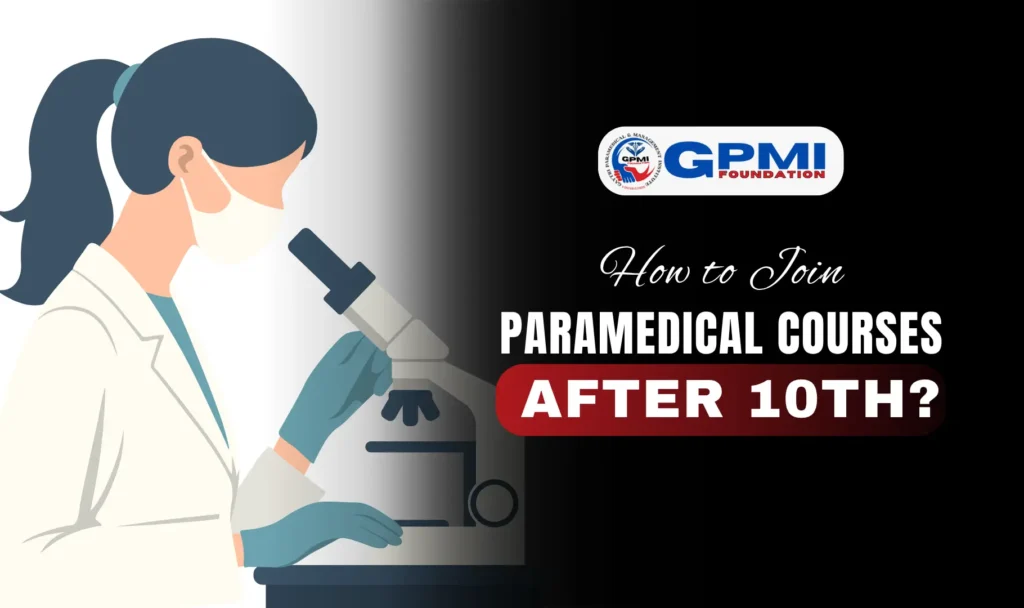
Joining paramedical courses after 10th is a simple process. First, students must pass their 10th class from a recognized board. Next, they can choose a course based on their interest such as lab technology, radiology, dialysis, or nursing care.
Most institutes offer direct admission without any entrance exam. Students need to fill out the application form, submit required documents (10th mark sheet, ID proof, photos), and pay the admission fee.
Some institutes may also conduct interviews or counseling. It’s best to search for paramedical institutes near you and check their eligibility and course details before applying. Most institutes offer direct admission without entrance exams. Always verify the institute’s affiliation and recognition before enrolling.
Paramedical Courses After 10th Application
To apply for paramedical courses after 10th through offline mode, students need to visit the institute offering the course. They must collect the application form, fill it accurately, and submit it along with required documents like the 10th mark sheet, photographs, and ID proof. Admission is usually granted on a first-come, first-served basis.
Paramedical Courses After 10th Online Application
To apply for paramedical courses after 10th through online mode, students must visit the official website of the institute offering the course. They need to fill out the online application form with accurate personal and academic details, upload scanned documents like 10th mark sheet, ID proof, and passport-size photo, and pay the application fee online.
After successful submission, candidates will receive a confirmation email or message. This process is convenient, quick, and allows students to apply from anywhere. No entrance exam is usually required for admission.
Conclusion
In conclusion, paramedical courses after 10th offer a smart and practical pathway for students who want to enter the healthcare field early without pursuing long academic degrees.
These skill-based, job-oriented programs are designed to provide hands-on training and prepare students for real medical environments such as hospitals, diagnostic labs, operation theatres, and emergency units.
Affordable fees, and quick job placements, these courses are ideal for 10th pass students who wish to gain financial independence and professional dignity at a young age.
The demand for paramedical staff is rising steadily, making this field not just relevant, but essential to India’s growing healthcare infrastructure. Choose the course that matches your interest and start building your future in healthcare today.
Paramedical Courses After 10th How Many Years?
Paramedical courses after 10th generally range from 6 months to 2 years, depending on the type and level of the course. Certificate Courses – Duration: 6 months to 1 year, Diploma Courses – Duration: 1 year to 2 years
Which course is best in paramedical after 10th?
The best paramedical course after 10th depends on your interest, but popular options include DMLT, Operation Theatre Technology, and EMT. These are job-oriented, skill-based courses that offer quick employment in hospitals, clinics, or labs after 1–2 years.
Can I study Medical after 10th?
Yes, you can study medical-related courses after 10th through paramedical diploma or certificate programs. While you can’t pursue MBBS or B.Sc. directly after 10th, you can join skill-based courses like DMLT, X-Ray Technology, Dialysis Technician, or EMT, which lead to jobs in the healthcare field and can also be a stepping stone for further studies.
Can I do Anesthesia after 10th?
No, you cannot directly pursue an Anesthesia course after 10th. Most diploma or degree courses in Anesthesia Technology require a minimum qualification of 10+2 with Science (Physics, Chemistry, Biology). However, after 10th, you can start with a general paramedical diploma and later specialize in anesthesia after completing 12th or equivalent studies.


